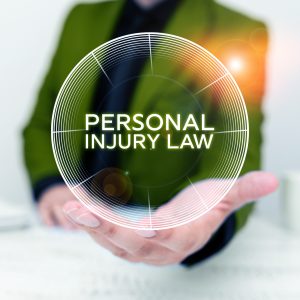This guide will look at how to include a claim for loss of earnings as part of a personal injury case. After being injured in an accident, you may find it impossible to work as you did before. In addition to the time needed off work to recover, you may have to change professions completely as you re-adjust. Here, we’ll explain how the third party who caused your injuries could be liable to compensate you for all this.
Our guide starts by explaining what loss of earnings is and the eligibility criteria you need to meet to claim for them. After this, we look at legal obligations placed on individuals and organisations in day-to-day situations you may find yourself in. Then we give some examples of how these obligations can be breached and when you might be able to make a compensation claim.
Next we take a thorough look at how compensation could be awarded and what factors go into this. Additionally, we explain what evidence is used to calculate financial loss. We also include a section about how self-employed people can claim compensation for lost income.
Our final section explains how legal representation could help you make a claim through a type of No Win No Fee agreement.
Working with a skilled personal injury solicitor from our panel may be possible if your case is strong and you wish to use our services. You can read on to learn more about this, or if you prefer, discuss it now by:
- Calling on 020 8050 2736.
- Enquiring about your potential claim online.
- Using the dialogue window to start a conversation.

Jump To A Section
- What Is Classed As Loss of Earnings?
- Can You Claim For Loss of Earnings?
- How Much Compensation Could You Claim For Loss of Earnings?
- How Do You Prove A Loss of Earnings Claim?
- Can You Claim For Future Loss of Earnings?
- How Can We Help You Claim For Loss of Earnings?
- Learn More About How To Claim Personal Injury Compensation
What Is Classed As Loss of Earnings?
Loss of earnings is a term that refers to the financial impact faced by people who are unable to generate their usual level of income. This can include:
- A drop or loss in current and future earnings.
- Loss of bonus payments or overtime.
- An inability to advance in their chosen career path because of injury.
- Loss of a promotion.
- Negative impact on any staff benefits such as company healthcare and pension contributions.
If you’d like to discuss loss of earnings with our advisory team right now, you can call or use the live chat box at the bottom of this screen.
Can You Claim For Loss of Earnings?
There are various situations in your daily life where another party has a legal obligation to take proper care to avoid causing foreseeable harm. This is known as a ‘duty of care’. In the following sections, we examine a few day-to-day situations where you are owed a duty of care and what could happen should this be breached.
Accidents At Work
The Health and Safety at Work etc Act 1974 (HASAWA) states that all employers have a duty of care to take practical and reasonable steps to prevent their employees from being harmed as they work. If they breach this and you sustain an injury in an accident at work, you could be entitled to compensation.
For example, your employer may fail to conduct required risk assessments. This can result in a back injury if they did not assess how many people it would take to move an item and you did it without help when an assessment would have identified two people were needed.
A successful compensation claim for a workplace injury could include the physical, psychological and financial harm caused by the accident.
Accidents in a Public Place
Those in control of an area open to the public (called ‘occupiers’) have a duty of care as outlined by the Occupiers’ Liability Act 1957. They must implement measures that ensure visitors’ reasonable safety whilst using their area as intended. If they fail to do this, and you suffer an injury as a result, you could seek compensation.
For example, if a spillage occurs in a supermarket, the shop should have procedures in place, such as displaying a wet floor sign to prevent accidents. Failure to do so could result in a slip, trip and fall, leading to a broken ankle.
With this in mind. claims for accidents in a public place might include lost earnings if you were harmed because of a hazard to the public.
Road Traffic Accidents
All road users, including pedestrians, cyclists, vehicle drivers and motorbike riders, must navigate in ways that present the least risk of danger and hazard to others. This is the duty of care. To fully meet this obligation, all road users must adhere to the Road Traffic Act 1988 and additional rules, regulations and recommendations detailed in the Highway Code. If they breach this and cause an injury, a personal injury claim could be filed against the liable road user.
For example, if you are using a pedestrian crossing and a car driver speeds through a red light, you could be hit, causing multiple injuries, including broken bones and brain damage.
Loss of earnings claims after road traffic accidents can, therefore, include amounts for not just physical or mental injury, but damage to your car, motorbike or bicycle, as well as impact on your capacity to earn.
For specific and personalised guidance on claiming compensation, speak to our team for free.

How Much Compensation Could You Claim For Loss of Earnings?
Your personal injury settlement could consist of two heads of loss. These are general damages (for the physical pain and mental suffering sustained in the accident) and special damages (for the financial losses and out of pocket expenses caused by the injuries). As awards are decided on an individual basis, based on the claimant’s circumstances, there is no set value for any part of a claim.
Loss of earnings is usually included under special damages. In addition to past and current out of pocket expenses and monetary harm, special damages can compensate for any predicted future financial losses.
Calculating an amount for lost earnings can be complex and vary according to many factors. For example, it can be based on:
- The level of net (not gross) income you were receiving at the time of injury. Compensation is calculated on take-home pay as this is the amount that would have applied if the injury hadn’t happened.
- The amount of time you needed off work.
- Whether your employer has a sick pay scheme and if you qualified for it.
To submit a claim for special damages, it’s necessary to have documented evidence in the form of invoices, receipts, bank statements and wage slips that show expenses caused by the injury.
General Damages
Importantly, if you fail to be awarded general damages in a claim, you will not receive special damages. This is because general damage awards must apply in a personal injury claim as the basis of proof that you were actually injured.
These are calculated by using medical evidence and publications like the Judicial College Guidelines (JCG). The JCG provides guideline compensation figures for various types of injuries in different severities.
This part of your settlement could include compensation for more than one injury. Additionally, it’ll also consider the negative impact on your quality of life.
How Do You Prove A Loss of Earnings Claim?
Collecting evidence is an essential part of the personal injury claims process. It’s important to pull together as much proof as you can that shows liability for your injuries.
If you are seeking lost earnings compensation, you will also need to prove how the injury impacted your income. With this in mind, the following can be useful:
- An accurate record of how much time you needed off work, such as a ‘fit note’.
- A record of the last day you worked if you cannot return to your job at all.
- Proof of shifts and overtime you missed out on.
- Bank statements showing payments or other obligations you could not meet due to the injury.
- A record of any salary or state benefits you received. This might be deducted in the final calculations or taken into account when awarding compensation.
- Reliable evidence that your career path suffered because of the injury, such as your medical records that show your prognosis.
Why not chat over your claim for loss of earnings with our team? They can confidently assess your claim’s potential and possibly put you in touch with a solicitor from our panel to help.
Can You Claim For Lost Earnings If You’re Self-Employed?
Self-employed people may have an income that fluctuates. Building a claim for loss of earnings can, therefore, be more complicated. However, it’s still possible to submit a claim for self employed loss of earnings by keeping a close record of your income changes and the days you couldn’t work as normal. Additionally, you may need to submit copies of your accounting records from before the incident.
For further help with self-employed injury at work claims, please direct any questions to our expert advisors.
Can You Claim For Future Loss of Earnings?
Your injuries may mean you are off work for a prolonged period and the compensation paid before you return. In cases like this, it might be necessary to predict what future losses you could face.
Using medical evidence and future prognosis as the basis, a return date to work might be established. If it looks unlikely that you will return to work at all, those responsible for doing so could calculate your potential retirement date. After calculating the period of absence, they will work out what the total loss during this period would have been if the accident had not happened and you were on the same salary.
Other factors taken into account are pension contributions and any difference in salary created by the necessity to perform lower-paid work after your injuries.
To understand more about the process for making a claim for loss of earnings, reach out to our friendly advisory team.
How Can We Help You Claim For Loss of Earnings?
Starting a claim for loss of earnings is something anyone is free to do themselves. But the benefits of instructing an experienced solicitor could mean you are awarded a higher level of compensation.
In addition to negotiating for the best settlement, a personal injury solicitor can confidently build your claim. Also, they can handle all communications, meet deadlines and let you concentrate on getting well.
The solicitors on our panel are able to help eligible claimants by using a Conditional Fee Agreement (CFA). This is a type of No Win No Fee contract and has numerous advantages. For example, under a CFA:
- No solicitors fees apply up front.
- Fees don’t apply for solicitors’ services as the claim moves ahead.
- No solicitors fees for completed services if the claim fails.
- A success fee applies for claims with a positive conclusion. This is a percentage deduction from the compensation but is subject to a legal limit. Meaning that you always benefit most from the outcome.
If working with a solicitor on a No Win No Fee basis sounds like it could be helpful for you, please take the first step of getting in touch with our team. They can run through the assessment with you on the phone and potentially connect you with a solicitor from our panel to start your claim for loss of earnings. Discover more by:
- Calling on 020 8050 2736.
- Enquiring about your potential claim online.
- Using the dialogue window to start a conversation.

Learn More About How To Claim Personal Injury Compensation
These other guides may help:
- Some information about using a compensation calculator is in this guide.
- This guide looks at serious injury claims in detail.
- Compensation can also apply for psychological injury, so read more in this guide.
Some external resources:
- Read how to claim Statutory Sick Pay (SSP) in this guide from GOV.UK
- Also, information about first aid from the NHS.
- Here, the Health and Safety Executive (HSE) explains what the law says for self-employed people.
Thanks for reading our guide on a claim for loss of earnings. Reach out to the team for any more help.


